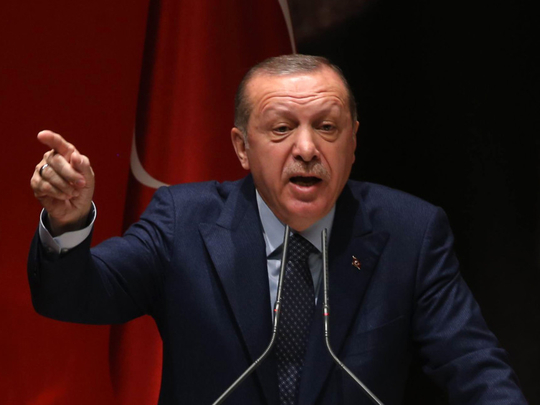
In free wrestling the idiom ‘no-holds-barred’ is often used to indicate that there are no physical rules can prohibit wrestlers in their endeavour to win. Therefore, a wrestler would unexpectedly change his/her tactics to stay in control, almost as Turkish President Recep Tayyip Erdogan has been doing lately in the political arena.
Erdogan is not the first, nor will be the last, politician to do this. The art of survival is usually the first lesson a politician would master to remain in a dominant position. Under dictatorship a leader would unquestionably eliminate opponents, physically if need be, on a whim. In democracy, leaders would tend to ‘kill’ their opponents softly, through plotting and counter-plotting peacefully.
Either way, the eventual aim for politicians is to maintain their grip on power as long as they possibly can, regardless the cost. This is unfortunately the truth throughout history of mankind. One politician, among many, Niccolo Machiavelli (1469-1527, politician and philosopher of the Renaissance period, stood out for his cunning thinking during the Florentine Republic (present-day Italy).
Turkey’s president and leader of the Islamic Justice and Development party (AKP) is pragmatically changing alliances, nationally and regionally, as rapidly as possible. One day you are his ally and the next you are a foe. Erdogan is currently leading a peculiar alliance with his recently former enemies, that puts his Islamic AKP, ultra-nationalists and Marxists, into the same pot.
The Nationalist Movement Party (MHP) is a party that followed a neo-fascist and ultranationalist political agenda since its foundation in 1969. MHP moderated its views when its new leader, Devlet Bahceli, took over the leadership ten years ago. MHP, with its 40 seats in the 2015 election, provides Erdogan with necessary parliamentarian requirements when he decides to further his authoritarian rule in the country.
On the opposite side of the spectrum, Erdogan is allying himself with the old Marxist-Maoist, Dogu Perincek, leader of the Patriotic Party (Vatan Partisi) (PP). Though it is not represented in the current parliament, PP provides Erdgan’s AKP with strong support among its well-organised ideologically tight net populist base. The PP claims to believe in Kemalism (Kemal Ataturk, founder of modern Turkey), Turkish nationalism and left-wing populism.
There are many issues that bring the three unlikely allies closer, but on the top of the list is the Kurdish question. In fact, MHP’s right wing leader, Devlet Bahceli, whose party is well represented in Turkey’s parliament, made most peculiar statement two weeks ago. He claimed that the Iraqi cities of Arbil and Mosul “are Turkey’s 82nd and 83rd provinces”, calling on Erdogan to consider the Syrian governorate of Aleppo with its district of Afrin, as “the 84th and 85th” successively.
It is clearly obvious that Machiavellian Erdogan resorts to establishing new alliances prior to general elections. He has been doing that since he became prime minister for the first time in 2003. Despite Bahceli’s bitter differences with Erdogan, they both share their disdain of the Kurds. Bahceli has strongly supported Erdogan’s extreme policy against the banned Kurdistan Workers Party (PKK) and the legal Peoples Democratic Party (HDP) that has 59 seats in Turkey’s parliament. HDP’s leader, Selahattin Demirtas, has been imprisoned for almost a year, accused by Erdogan for supporting PKK. Bahceli fully supports Turkey’s president endorsement of restructuring the political system in the country in favour of Erdogan.
For the left-wing Patriotic Party leader, Dogu Perincek, the only thing that brings him closer to Erdogan is his deep hate of anything called Kurds. Despite his party’s socialist leaning, the PP considers itself a Kemalist, nationalist, vanguard party that believes in the purity of Turkey. The party founding members included army nationalistic generals. Its leader, Dogu Perincek, met president Bashar Al Assad in Damascus in 2015 and discuss with him ways of how to face up to the rise of Kurdish independent inspiration.
When there was a call for referendum in the Kurdish province of Iraq last June, Perincek called on Erdogan to take “emergency measures” and begin talks with Syria, Iraq, Iran and Azerbaijan, as well as “normalisation of relations” with Syria and reopening the Turkish embassy in Damascus.
In another Machiavellian twist, this is how Perincek swiftly changed from a feared enemy of Erdogan to the closest ally in just under a decade. In 2007 he described the president as the most dangerous politician Turkey was facing in his latest book The Crusader Reactionaries, accusing Erdogan of being lackey of the West. In 2008, Perincek was among more than 340 politicians, journalists, opposition lawmakers and high-ranking army officers, who were arrested in what was called then ‘Ergenekon Trials’. All alleged members of Ergenekon, a secularist clandestine organisation, were accused of plotting against Erdogan’s government and heavily sentenced for long periods in 2011. Perincek was sentenced for life with labour.
But mysteriously the PP leader turned into the staunchest ally to Erdogan after the Turkish president decided in 2014 to suddenly pardon all those accused in Ergenekon case, including the army officers and, of course, Perincek. Erdogan felt he had to play Machiavelli yet one more time to mobilise support against the rising popularity of HDP’s Kurdish leader, Demitras.
Now, with the state of emergency still in place following the failed coup last year, Erdogan is very likely to continue the constitutional changes he started following last April referendum. Many suspects this will sufficiently allow him to stay in power until 2029, if not longer.
Mustapha Karkouti is a columnist and former president of the Foreign Press Association, London. You can follow him on Twitter @mustaphatache.








